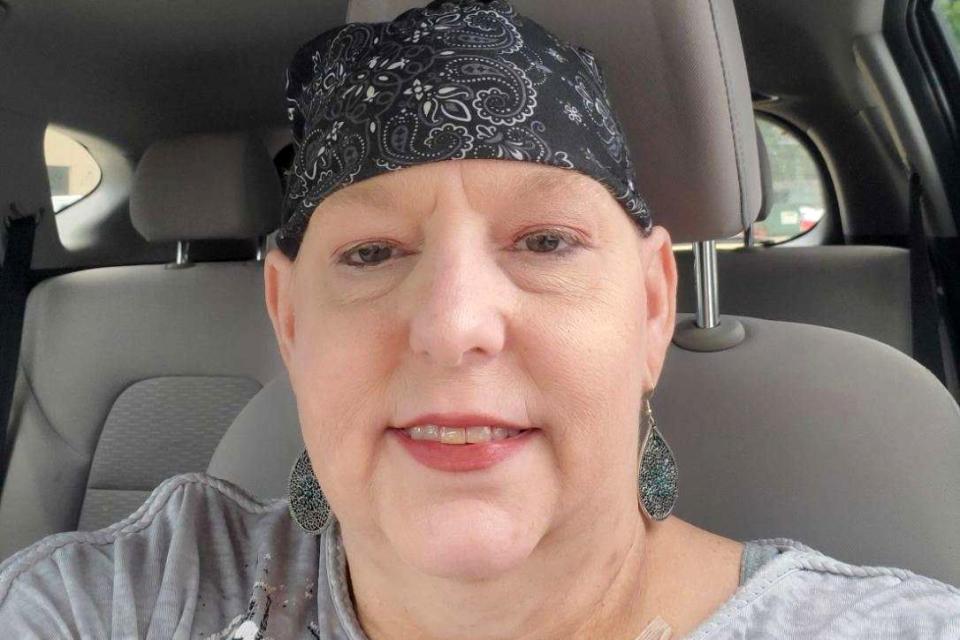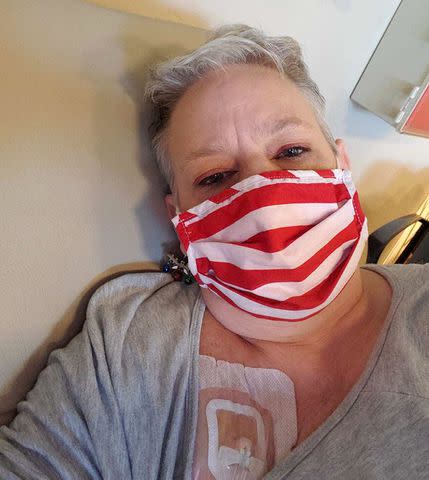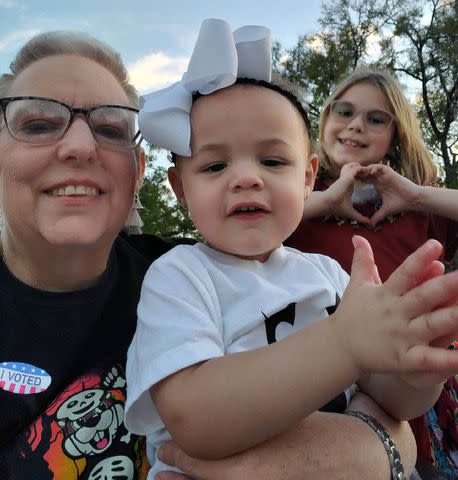Texas Nurse Tripped at Home, Found Out She Had a Brain Bleed — and Leukemia
"It was quite a big shock," Donna Ford tells PEOPLE, after a fall in her hallway revealed she had a brain bleed as well as leukemia

Courtesy of Donna Ford
Donna Ford was getting ready for work last May when she experienced what she thought was a harmless fall in her hallway.
“I tripped on a board and landed on my bottom,” the licensed vocational nurse tells PEOPLE.
At the time, Ford, 52, worked nights at a nursing home in Trinity, Texas. After she fell, she went to work as planned but had headaches all night. “I didn’t feel well,” she recalls.
When she got home from work, she told her husband she needed to go to the hospital. Although she didn't recall hitting her head, “I could hear a rushing sound in my ear and my vision was a little bit off," she says. "As a nurse, I knew what those signs were.” She asked her husband to take her to the emergency room.
A CT scan at the ER near her home in Livingston, Texas, confirmed her fear: She had a brain bleed.
She was sent home and told that the subdural hematoma would resolve on its own. But the next morning, she couldn’t stop vomiting. "I knew that it wasn't getting better," she says, "it was getting worse." So she called an ambulance.

Courtesy of Donna Ford
Donna FordAfter another CT Scan, she was flown via Life Flight to Houston’s Memorial Hermann Hospital. There she was diagnosed not only with a brain bleed — but also acute promyelocytic leukemia.
“It was quite a big shock,” she says. “I don't think I would've found out about the leukemia as quickly, if I hadn't fallen.”
Serious bleeding — often in the brain — can be a sign of this type of leukemia, says her oncologist, Dr. Adan Rios.
“This creates an enormous challenge,” says Rios, surgical oncologist with UTHealth Houston and Memorial Hermann. “A surgical intervention in the middle of an early diagnosis of leukemia is a complex process that requires very specialized management.”
Instead of doing open brain surgery — which could have led to brain damage, or possibly even death — doctors performed a minimally invasive technique. Dr. P. Roc Chen, a neurosurgeon with UTHealth Houston and Memorial Hermann, inserted a catheter in an artery in Ford’s thigh, and threaded it to her brain which “obliterated” the hematoma on her brain.
While this rare procedure has been done before on non-lymphoma patients, Ford is one of only three acute leukemia patients in the country who have been treated using this method.
Once the bleeding in Ford's brain was under control, she was able to begin cancer treatments.

Courtesy of Donna Ford
Donna Ford“This leukemia is very unique,” Rios says. “About 95 percent of these cases, once you start treatment, they ended up being cured. The first stage of the diagnosis is critical: If you’re able to get the patient over the acute phase, most of these patients will go on and be cured of their leukemia.”
Ford spent a month in the hospital and did four rounds of chemo over eight months.
Right now, she is in remission. “Her prognosis is very good,” her oncologist says.

Courtesy of Donna Ford
Donna FordHaving just completed chemo, she is unable to work at the nursing home anymore, but she is helping take care of her five grandchildren. “We are playing, playing, playing,” she says.
“I'm doing a lot better. I feel better. I'm not tired like I was. A lot of things made sense to me after getting the diagnosis of the leukemia, the tired feeling and I had some unusual bruising that was going on,” she says.
Ford urges other women to go to their doctor for regular checkups. And if something is wrong, advocate for yourself and keep fighting until you get a diagnosis and find the right treatment.
“Just don’t give up,” she says.
For more People news, make sure to sign up for our newsletter!
Read the original article on People.

